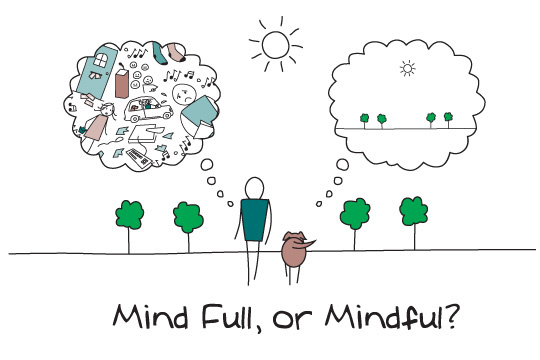Calming the monkey mind
Friend who’s staying over this weekend for airshow practice: “What are you up to today?”
Me: “Writing my section of a joint book chapter that I’m behind on, and getting ready for dinner tonight.”
We’re having a dozen folks over and there should probably be food available, right? So I sit down to write my grocery list. Then realize I need to check a recipe. So I jump on my computer. Check Facebook and Twitter. See a post from someone who got arrested in a TSA checkpoint for no apparent reason… Start to write a reply indicating I’m writing a book about the TSA and would she like to be interviewed. Midway through the tweet, realize I don’t have time to interview anyone right now. Jump to Google docs to see what my co-author has written about. Answer a skype notification. Talk to G about life and drink some coffee.
Hear the dogs getting into something. Jump up to see they’re fine. Remember I wanted to put a load of laundry in. Back to the office. Find the recipe. Look at Twitter again and see a reply that affirms my posted-at-midnight new research idea. Feel a twinge of FOMO because I’m already overdue on an article revision and my section of the book chapter, plus I’ve just conducted 30 interviews for a new project and I’m writing a book about something else. Check email. Think about all of the people I haven’t replied back to yet. Hear the washing machine ding. What am I making for dinner again?
So, monkey mind.

I learned the term a couple months ago in a lecture about mindfulness. Monkey mind is apparently a Buddhist phrase that means “unsettled; restless; capricious; whimsical; fanciful; inconstant; confused; indecisive; uncontrollable” according to the venerable source, wikipedia. In the lecture, the mindfulness guru, Shauna Shapiro, described how we have 50 to 70 THOUSAND thoughts per day, most of them a loop of the same topics. And that according to a Harvard research study, our minds wander 47% of the time. 47%!
While that makes me feel slightly better to know I’m not alone, I often feel guilty for having a monkey mind and jumping from task to task and idea to idea, and then finding myself not having accomplished much, and then feeling extra guilty about it. Shapiro described this as a shame loop, and emphasized: Shame. Doesn’t. Work. She went on to share neurological research about how feeling shame shuts down the learning centers in the brain. So feeling guilt and shame about having monkey mind and not being as productive as I want just leads to less ability to work and concentrate, which leads to more guilt and shame. Awesome.
So what to do? Shapiro discussed mindfulness practices like setting an intention so you can know where to focus your attention. She described intention as “setting the compass of your heart” and to cultivate KIND attention for yourself and others. Part of that for me is recognizing the monkey mind and rather than castigating myself, redirecting. Refocusing.
Today, I’m starting with this post. One of the things I was feeling guilty about earlier is only having written five blog posts in the last six months. In the middle of the “how can I call myself a blogger if I never blog?” and “How will I ever get a ‘platform’ for my book if I don’t have an active following online” thoughts, I forced myself to stop. And revisit my notes from Shapiro’s talk. And write. Because that always helps me focus. I’ve had that thought cycle SO MANY TIMES over the six months, but it usually ends with me going off and doing other things, further continuining my “problem.” Not today!
I’m setting an intention to do my best to focus on my goals: to write my part of the book chapter and get ready for dinner. That’s all I need to do today. The rest can wait. Except the dogs. The silence now tells me they are definitely up to something!
xoxo,
shawna


